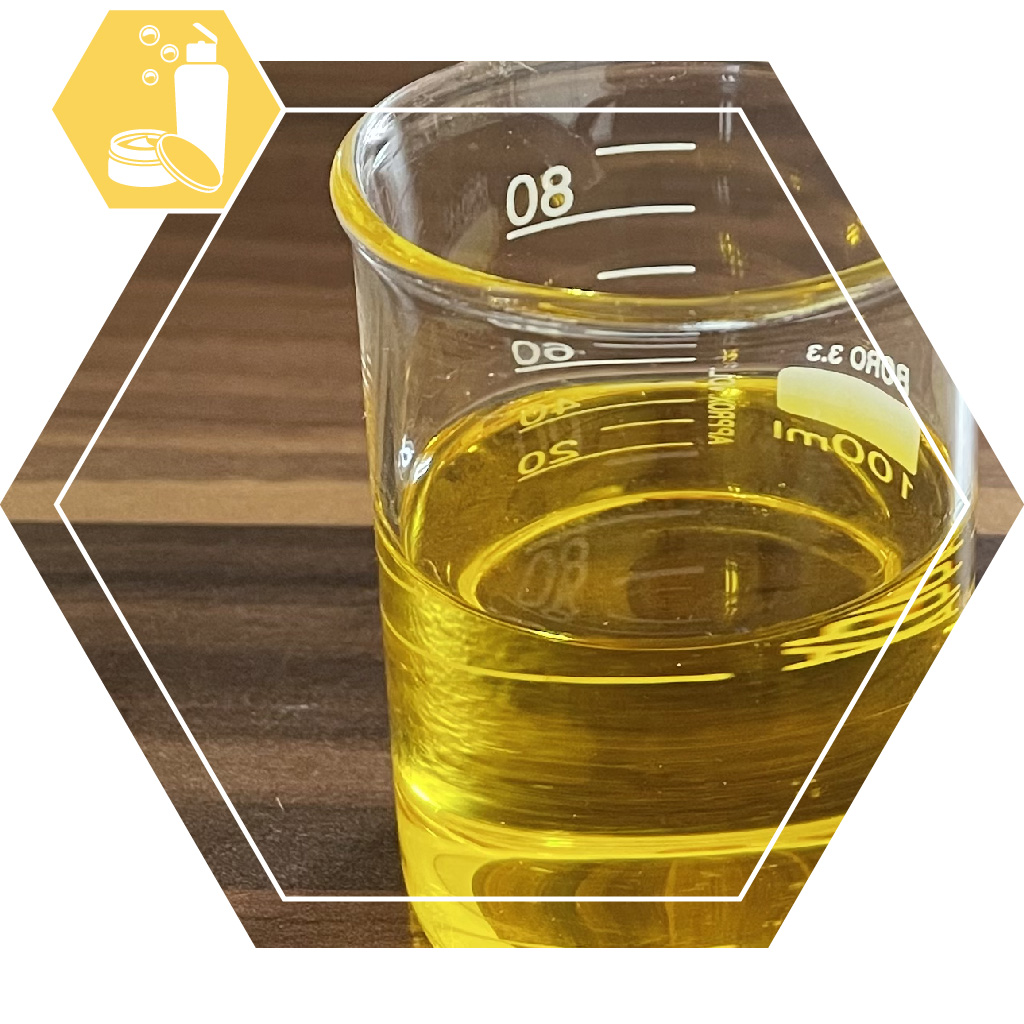Fragrance raw material
Description
Jojoba oil (org) is an organic vegetable oil for use in cosmetics.
Use
Jojoba oil (org) can be used in the oil phase of creams: mix it with the other ingredients of the oil phase, and it's practically problem-free. It can also be used in ointments, lip balms, oil perfumes, hair oil, and the like. In most cases it is just mixing with the other ingredients, no more difficult than that. Where heating in a water bath is necessary for the other ingredients, it's no problem at all.
De Hekserij does not sell products intended for use in food or other internal use. This product is NO exception.
Properties
Jojoba oil (org) is a colourless to yellow-brown liquid at room temperature. Vegetable oil can (partially) solidify, especially during the colder months. This makes the oil appear cloudy and contains solid pieces in the form of lumps or long strands. Often, it's sufficient to let the oil warm up to room temperature; sometimes, it's necessary to warm it in a bain-marie for a while. The oil is extracted by pressing and is slightly refined. Store the oil at room temperature.
The oil is extracted from the seeds of the jojoba shrub, or Simmondsia chinensis (Link) C.K. Schneid. These seeds come from organically grown shrubs, meaning that no artificial fertilizers or pesticides have been used (or only occasionally).
Jojoba oil has several excellent properties. It is virtually oxygen-resistant and therefore hardly goes rancid. This is because, chemically speaking, it is actually a liquid wax, not an oil. Therefore, even very sensitive skin and mucous membranes are rarely irritated by jojoba oil. For this reason, jojoba oil is fundamentally different from other types of oil, and its longer shelf life makes it very popular in the cosmetics industry.
Jojoba oil is primarily used for dry, very dry, sensitive, and mature skin, but like virtually any oil, it's suitable for all skin types. The oil spreads easily on the skin and doesn't feel particularly greasy. Jojoba oil is also an excellent carrier for fragrances in oil-based perfumes. Although the perfume has a very different character than regular alcohol-based perfumes (a much weaker scent, which lasts much longer), jojoba oil is certainly suitable for this because of its neutral scent, even after a longer period of time.
Sustainability
Jojoba oil (org) is extracted from plants. It's not very easy to biodegrade, but it is completely biodegradable. Although the plant is rarely (if ever) cultivated in Europe, meaning the oil must always be imported from elsewhere, it is perhaps the most sustainable oil in our range for several other reasons. The oil can be grown in semi-deserts, where few other plants grow. This means it doesn't compete with agriculture and has no impact on food production. The plant requires little water, little to no fertilizer, and few to no pesticides. Our jojoba oil is organically grown.
Packaging
Jojoba oil (org) is packaged in brown plastic (PET) bottles with black plastic (PP) caps. Larger packages come in a plastic (HDPE) canister.
Hazards
Jojoba oil is not classified as a hazardous substance (REACH/CLP). We nevertheless recommend handling all substances with care.
Codes
Article number: 11003
Dutch name: Jojobaolie (org)
EC number: 289-964-3
CAS number EU: 90045-98-0
CAS number TSCA: 90045-98-0
INCI: SIMMONDSIA CHINENSIS SEED OIL





